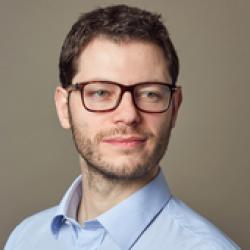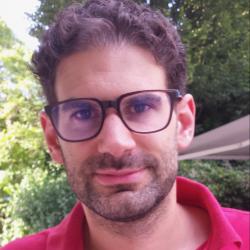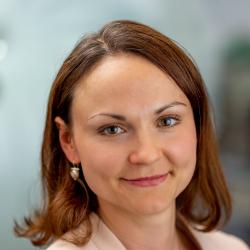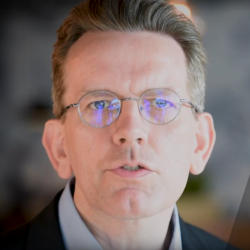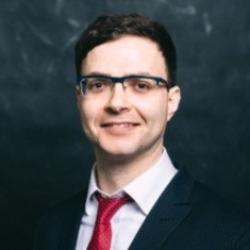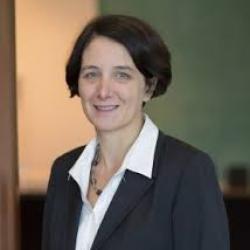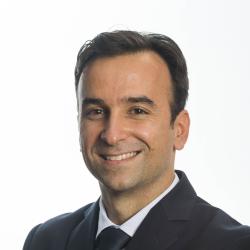Programme 2019
Programme 2019
Quant Summit EU 2022 Agenda
08:00 – 09:00
Registration opens | networking gallery and refreshments
08:00 - 09:00
09:00 – 09:10
Risk.net Welcome
09:00 - 09:10
Mauro Cesa is quantitative finance editor for Risk.net, based in London. He leads the team responsible for the publication of quantitative research across all brands of the division. The section of Risk.net he manages, Cutting Edge, publishes peer-reviewed papers on derivatives, asset and risk management, and commodities.
Mauro holds a degree in economics from the university of Trieste and a masters in quant finance from the University of Brescia.
09:10 – 09:40
Pricing models, deep hedging, & volatility
09:10 - 09:40
09:10 – 09:40
Opening Keynote: Deep hedging – pricing and hedging derivatives using ML
09:00 - 09:30
Ben Wood co-heads the Equity Derivatives Quantitative Research team at JPMorgan Chase. The team builds quantitative models and analytics for the Exotics, Flow, Delta One, Corporates, and Equity Financing businesses globally. Their work combines classical financial engineering with modern machine learning methods, including the application of AI to derivatives hedging. As part of the AI trading initiative, Ben coauthored the Deep Hedging series of papers, and he supervises the team running Deep Hedging in production today.
Ben has worked in the Equity Derivatives team in London since joining JPMorgan Chase in 2011. He began his quant career at Deutsche Bank. Before that, he was a postdoctoral researcher in Physics at Imperial College, where he used theoretical and computational techniques to investigate photonics, plasmonics, metamaterials and invisibility. He has a PhD in Physics, with a thesis on Quantum Monte Carlo simulations.
09:40 – 10:10
Hiding in Plain Sight – looking under the covers of the current market rotation
09:40 - 10:10
Sponsored by:

George Bonne, PhD, PRM joined MSCI in 2016 as Executive Director of Equity Factor Research, where he and his team research and design the Barra equity factor risk models and conduct research on new and innovative factors and content to be used in MSCI’s analytics and index products. Recent projects have involved exploring alternative and unstructured data, leveraging machine learning and NLP in solving investment problems, investment crowding, and creating the next generation of equity factor models.
Prior to MSCI George was Director of Quantitative Research at Thomson Reuters StarMine where he worked for ten years to create novel alpha signals and other quantitative models for investment managers and received two US patents on quantitative models. Previous to StarMine George worked at Applied Materials and KLA-Tencor to create predictive models of the performance of semiconductor equipment.
George received his PhD in Physical Chemistry from Harvard University and a Bachelor’s degree in Chemistry from UC Irvine. George is also a certified Professional Risk Manager (PRM).
10:10 – 10:40
Statistical learning of market micro structure – how common sense shapes price impact across timescales and instruments
10:10 - 10:40
Iacopo Mastromatteo
Executive direction – head of directional portfolio construction
Capital Fund Management
Iacopo Mastromatteo is Vice President in Capital Fund Management since 2015, where he is in charge of Transaction Costs Analysis, design of execution models and portfolio construction. He holds a PhD in Statistical Physics from the International School for Advanced Studies of Trieste. His main interests involve statistical learning and market microstructure. He has contributed to the research in these fields with more than twenty research papers.
10:40 – 11:00
Morning Networking Break
10:40 - 11:00
11:00 – 11:30
Rough volatility models – opening up opportunities for unique hedging and pricing
11:00 - 11:30
Dr Blanka Horvath is an associate professor in mathematical and computational finance at the University of Oxford. Blanka’s current research interests evolve around a new generation of option pricing models (Rough Stochastic Volatility models), and their asymptotic and numerical properties. Prior to her current appointment, she was at ETH Zurich, specialising in functional analytic and numerical properties of SABR-type stochastic models. Blanka holds a PhD in Mathematical Finance from ETH Zurich, a Diploma in Mathematics from the University of Bonn and an MSc in Economics from the University of Hong Kong.
11:30 – 12:00
Autoencoder Market Models for the Interest Rates (AEMM)
11:30 - 12:00
Alexander Sokol is the founder, Executive Chairman, and Head of Quant Research at CompatibL.
In 2022, he has been awarded the Fintech Person of the Year Award for his expertise and developments on a new class of machine learning risk models that can work with short pandemic-era historical time series. Alexander also won the Quant of the Year Award in 2018 together with Leif Andersen and Michael Pykhtin, for their joint work revealing the true scale of the settlement gap risk that remains even in the presence of initial margin.
Alexander’s other notable research contributions include systemic wrong-way risk (with Michael Pykhtin, Risk Magazine), joint measure models, and the local price of risk (with John Hull and Alan White, Risk Magazine), and mean reversion skew (Risk Books, 2014).
12:00 – 12:10
Break for room split
12:00 - 12:10
12:10 – 13:10
Stream
Stream One: Machine Learning & Tech
Multi-dimensional non-linear regression with neo-classical methods
12:10 - 12:40
The Momentum Transformer – deep learning that intelligently adapts to regime changes in financial data
12:40 - 13:10
Stefan Zohren is deputy director of the Oxford-Man Institute of Quantitative Finance and an associate professor at the Department of Engineering Science at the University of Oxford. He is a fellow of the Turing Institute, the UK’s national institute for artificial intelligence (AI) and data science. Zohren’s research is focused on machine learning in finance, including deep learning, reinforcement learning, network and natural language processing approaches, and early use cases of quantum computing. He works with Man Group on commercial research projects and is a frequent speaker on AI in finance, representing the Oxford-Man Institute at academic conferences, industry panels and corporate events.
Stream
Stream Two: Data, Risk Modeling & Investing
CO2eVA – pricing carbon externalities transition
12:10 - 12:40
Chris Kenyon is Global Head of Quant Innovation at MUFG, and also Global Head of XVA Quant Modelling at MUFG. Previously Chris was head of XVA quant research at Lloyds Banking Group, worked at Credit Suisse and Depfa Bank plc where he was the post-crisis head of structured credit valuation after working on inflation-rates hybrids introducing new smile models. Chris formalized KVA and MVA with Andrew Green, as well as PFL as the replacement for PFE. More recently he introduced a climate change valuation adjustment (CCVA). Chris has a PhD from Cambridge University, published 17 papers in the Cutting Edge section of Risk magazine (twice joint top-cited author), holds 10 US patents, and was an author of the open source software QuantLib.
Panda Algorithm – dynamically controlled kernel estimation
12:40 - 13:10
13:10 – 14:00
Lunch and Networking Break
13:10 - 14:00
14:00 – 15:00
Stream
Stream One: Machine Learning & Tech
Utilizing deep learning for order specific price momentum forecasting
14:00 - 14:30
Robert DeWitt
Head of quantitative strategies group algo, equities, EMEA
Bank of America Merrill Lynch
Robert De Witt is currently Managing Director, Head of Quantitative Strategies and Data Group for EMEA Equities Execution at BofA Securities. Robert looks after research and development of equities execution algorithms in EMEA where BofA has demonstrated leading market share for the entirety of 2022. Robert brings 20 years’ experience designing and building execution algorithms between the EMEA and APAC regions. Before joining BofA Securities in 2019, Robert led the Statistical Modelling and Development group for EMEA and APAC at Barclays, also involved in building execution algorithms. Robert studied Computer Science at University of California, San Diego, and Financial Engineering at Columbia University.
Ilya Sheynzon is currently Vice President, Quantitative Researcher in Quantitative Strategies and Data Group for EMEA Equities Execution at BofA Securities. Ilya brings 9 years’ experience designing and building execution algorithms. Before joining BofA Securities in 2018, Ilya worked in the Linear Quantitative Research group at J.P. Morgan and as a fellow in Statistics and Finance at LSE. He studied Mathematics at Moscow State University, Economics at New Economic School, Operations Research at Cornell University, and holds a PhD in Statistics from LSE.
From Zero to One and Beyond - scaling up a new quant unit
14:30 - 15:00
Joel Sampson is Head of Quant Alpha Research Lab Platform at Man Group and has previously worked in HFT execution. He has an MEng in Computer Science from Bristol University. His main interests are computational efficiency and building high performance systems that can scale quickly and horizontally.
Stream
Stream Two: Data, Risk Modeling & Investing
Alternative risk premia – what is its role in portfolio allocation?
14:00 - 14:30
- Momentum
- Mean reversion
Sandrine Ungari is currently Head of Cross-Asset Quantitative Research team and Deputy Head of the Global Quantitative Research team at Société Générale. The Quantitative Research team is active in risk premia strategies, derivatives and structured products, portfolio risk modelling, and provides research to investors worldwide. The group has been recognised as a market leader in quantitative research, and was ranked #1 in the Extel survey in the Quantitative Strategies category. Sandrine joined Société Générale in 2006. Prior to that, she worked as a quantitative analyst at HBOS Treasury and at Reech Sungard in London. She is a graduate of ENSTA (Paris) and hold a Master's in Quantitative Finance from Paris VI University. She is a guest lecturer at University Paris Diderot.
Inflation & Portfolios – rethinking strategic asset allocation
14:30 - 15:00
Nick Baltas
Managing director, head of R&D, portfolio construction and XA one-delta strategies
Goldman Sachs
Nick Baltas, Ph.D., is a managing director and head of R&D of the Systematic Trading Strategies (STS) Group at Goldman Sachs. He is responsible for providing thought leadership in the space of factor and risk premia investing, portfolio construction, and strategy design. Alongside, he maintains a visiting academic position at Imperial College Business School and has been appointed as the co-executive editor of the newly launched Journal of Systematic Investing.
Prior to joining Goldman Sachs in 2017, Nick was an executive director in the quantitative research unit of UBS. Previously, he was a Lecturer in Finance at Imperial College Business School, a visiting Lecturer at Queen Mary University of London, as well as a risk manager in a London-based hedge fund. He has received several teaching awards and his research has been awarded with numerous grants and prizes, has been published in academic finance journals and practitioner books, and has been quoted by the financial press. Most recently he was the recipient of the 2019 EQDerivatives Best Academic Research Paper Award in Alternative Risk Premia (joint with Bernd Scherer).
Nick holds a DEng in electrical and computer engineering from the National Technical University of Athens, an MSc in communications & signal processing from Imperial College London and a PhD in financial economics from Imperial College Business School.
15:00 – 15:30
Afternoon Networking Break
15:30 - 15:50
15:30 – 16:10
Panel: A sea of data – finding the value in an increasingly noisy area
15:30 - 16:10
- Defining big data – with data running rampant, what’s useful and what isn’t?
- The normalization of data science – how do we bring ML into traditional investment houses?
- Challenges in machine learning – what are the pitfalls and what should you be aware of?
Boyan Filev is the Head of Quantitative Equity Alpha Strategies and is responsible for overseeing Enhanced Index, Smart Beta and Artificial Intelligence systematic quantitative strategies.
Boyan joined the company in 2007, becoming a founding member for the Enhanced Index team. Prior to that he worked for State Street Global Advisors for as a portfolio analyst responsible for equities progressing to a junior portfolio manager in 2006.
Boyan graduated with an MSc in Accounting and Finance from the London School of Economics. Boyan also holds a BSc honours double degree in Finance and International Business from the University of Bridgeport (USA) and is a CFA charterholder.
Luiz Felix is expert portfolio manager at APG Asset Management. Luiz has worked in financial markets since 2001, starting his career as a fixed income portfolio manager in Brazil. During 2005-2008 he was a quantitative strategist at ABN AMRO Asset Management in Amsterdam. He joined APG in 2008 and is part of the Multi-Asset group. Luiz has designed and managed many internal systematic cross-asset strategies as well as allocated to external mandates. His latest work applies AI to investing, enabling him to develop NLP- and machine learning-based investment strategies. Luiz holds a PhD in Finance from the VU University Amsterdam.
Mauro Cesa is quantitative finance editor for Risk.net, based in London. He leads the team responsible for the publication of quantitative research across all brands of the division. The section of Risk.net he manages, Cutting Edge, publishes peer-reviewed papers on derivatives, asset and risk management, and commodities.
Mauro holds a degree in economics from the university of Trieste and a masters in quant finance from the University of Brescia.
Iacopo Mastromatteo
Executive direction – head of directional portfolio construction
Capital Fund Management
Iacopo Mastromatteo is Vice President in Capital Fund Management since 2015, where he is in charge of Transaction Costs Analysis, design of execution models and portfolio construction. He holds a PhD in Statistical Physics from the International School for Advanced Studies of Trieste. His main interests involve statistical learning and market microstructure. He has contributed to the research in these fields with more than twenty research papers.
16:10 – 16:40
Closing Keynote: Investing in commodities in an inflationary environment
16:10 - 16:40
Harold is the architect of Transtrend's Diversified Trend Program, responsible for research & development, portfolio management and trading. Harold was born and raised on a dairy farm in Drenthe. And from a young age, he has been intrigued by linking mathematics to the real world around us. In the final phase of his studies, while working on the project that would later become Transtrend, he became fascinated by the concept of leptokurtosis – or ‘fat tails’ – in probability distributions, a topic which has inspired him throughout his career.
His approach to markets is best described as a combination of a farmer’s common sense and mathematics, never losing sight of the underlying fundamentals.
16:40 – 16:50
Closing Remarks
17:00 - 17:10
Mauro Cesa is quantitative finance editor for Risk.net, based in London. He leads the team responsible for the publication of quantitative research across all brands of the division. The section of Risk.net he manages, Cutting Edge, publishes peer-reviewed papers on derivatives, asset and risk management, and commodities.
Mauro holds a degree in economics from the university of Trieste and a masters in quant finance from the University of Brescia.
